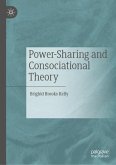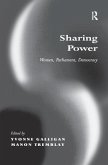It is widely assumed that internal power-sharing is a viable democratic means of managing inter-communal conflict in divided societies. In principle, this form of government enables communities that have conflicting identities to remedy longstanding patterns of discrimination and to co-exist peacefully. Key arguments in support of this view can be found in the highly influential works of Arend Lijphart and Donald Horowitz. Power Sharing seeks to explore the unintended consequences of power-sharing for the communities themselves, their individual members, and for others in society. More specifically, it is distinctive in questioning explicitly whether power sharing: perpetuates inter-communal conflict by institutionalising difference at the political level; inhibits conflict resolution by encouraging extremism; stifles internal diversity; and fails to leave sufficient space for individual autonomy. This book not only provides a theoretical exploration and critique of these questions, but comprehensively examines specific test cases where power-sharing institutions have been established, including in Northern Ireland, Belgium, Bosnia-Herzegovina, Macedonia and Lebanon. It also explores such issues as the role of political leaders, human rights instruments, the position of women, and the prospects for reconciliation within such societies. Furthermore it provides a detailed set of policy recommendations to meet the challenges of transition in deeply-divided societies.
Hinweis: Dieser Artikel kann nur an eine deutsche Lieferadresse ausgeliefert werden.
Hinweis: Dieser Artikel kann nur an eine deutsche Lieferadresse ausgeliefert werden.








